Club Champions – Ilkley Lawn Tennis and Squash Club, with Gavin Sutcliffe

On a beautifully sunny day in July, we visited Ilkley Lawn Tennis and Squash Club to talk to their new Head of Rackets and Development, Gavin Sutcliffe.
Gavin is a champion for the sport of tennis, having worked prior for the Lawn Tennis Association as their Development Manager. Gavin is passionate about outreach and grassroots sport, which immediately shone through during our chat, where we discussed the current state of tennis, it’s fluctuating popularity, as well as the power of padel.
Gavin Sutcliffe at Ilkley Lawn Tennis and Squash Club
“My title at Ilkley Lawn Tennis and Squash Club is Head of Rackets and Development. I’ve been enrolled at the club for 2 months now, but before that, I supported the club for 10+ years as a point of contact with the LTA (Lawn Tennis Association).
The Head of Rackets and Development role oversees the tennis program, the squash program, and the padel program. I need to ensure the programs are fit for purpose, suiting the members. I head up a team of self-employed coaches. I work closest with Kyle Brassington, Head of Performance, who manages children aged 5 up to 14 on the performance pathway.
Part of my role looks at finances. I review block bookings, consolidate the pay-and-play courts, as well as what revenue we produce.
Another large part of my role is development, which involves executing a master plan for the club. The current plan is to add 4 covered padel courts outside, we are currently waiting on a quote from engineers, planning permission, and will be putting a vote to our membership.”
What were your responsibilities in your previous role for the LTA?
“Previously I held the role of Tennis Development Manager for Yorkshire on behalf of the LTA. This became more of a regional development and participation role where I would support venues in promoting tennis, 120 in total. I worked in tandem with 20 local authorities, including universities and educational sites who want courts.
Say a club would want 5 new courts, I would support them in meeting their objectives, advising on appropriate costs and builds. This merged with the LTA’s strategy of growing tennis as a sport.”
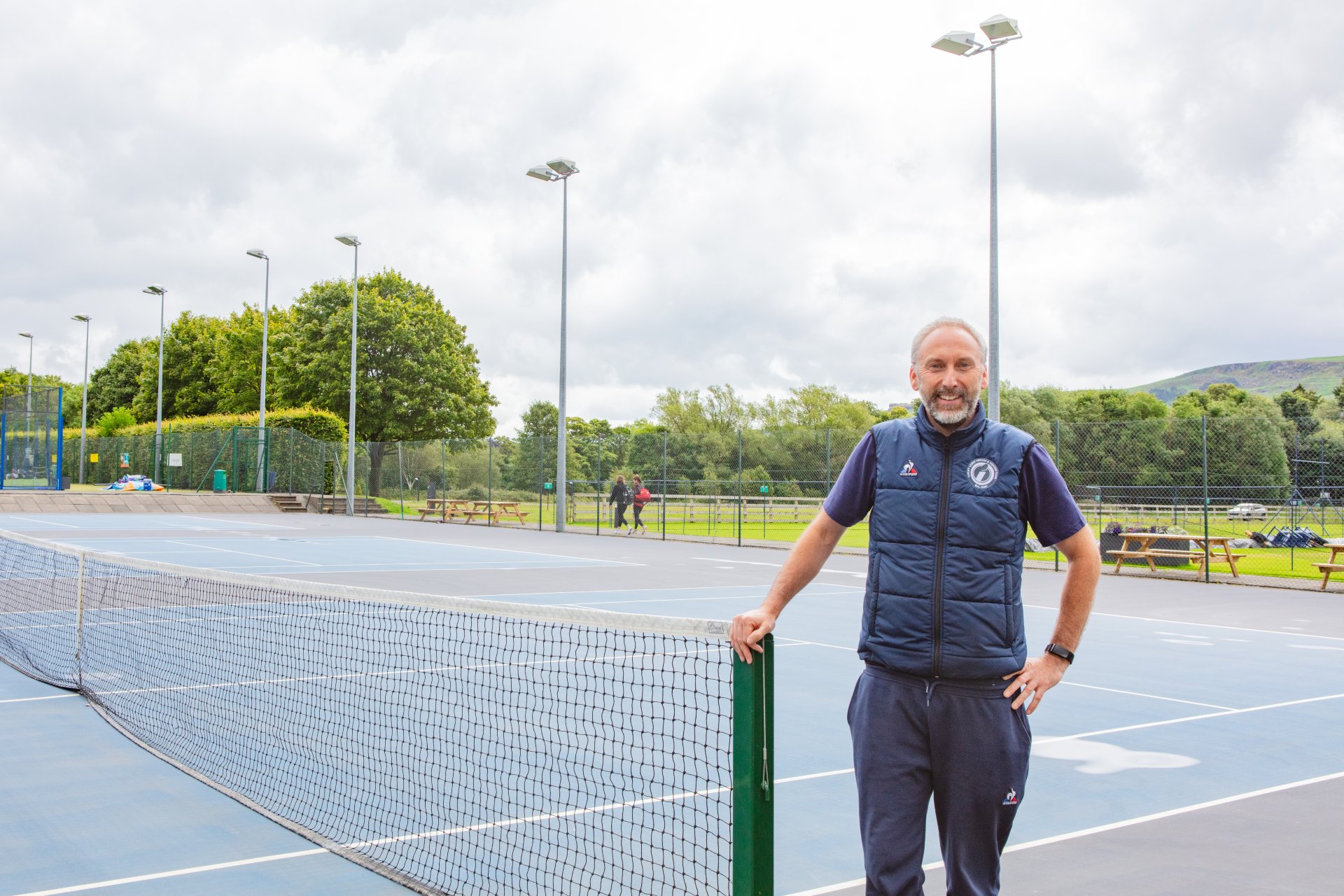
What tennis development services do you lead on at Ilkley Lawn Tennis and Squash Club?
“We have 250 active members on our development programme. This is a step up from our standard membership. And the top level is our performance programme, designed for those who have shown more commitment and want to come several times a week.
At Ilkley, we have 8 coaches, as well as part-time squash coaches and padel coaches. Our coaches manage both the performance programme and the general development programme for grassroots; both are equally as important to us. Interestingly, the high level performance programme doesn’t generate the club money, in fact it just about breaks even financially. The grassroots development programme does, yet the purpose of it is to grow the sport and fuel higher programmes.
The more juniors we attract, the more families we attract. Through a coaching programme, families tend to stay members during the journey of their child. It’s why David Lloyd put tennis courts into their building; not because the courts make the money, but because the memberships they garner do. Players are looking for additional services; indeed, many tennis clubs can feel like lonely places. Whereas at Ilkley, we’ve worked hard to create that society, with all different sessions happening at once on separate courts. It’s difficult to recreate that vibe.”
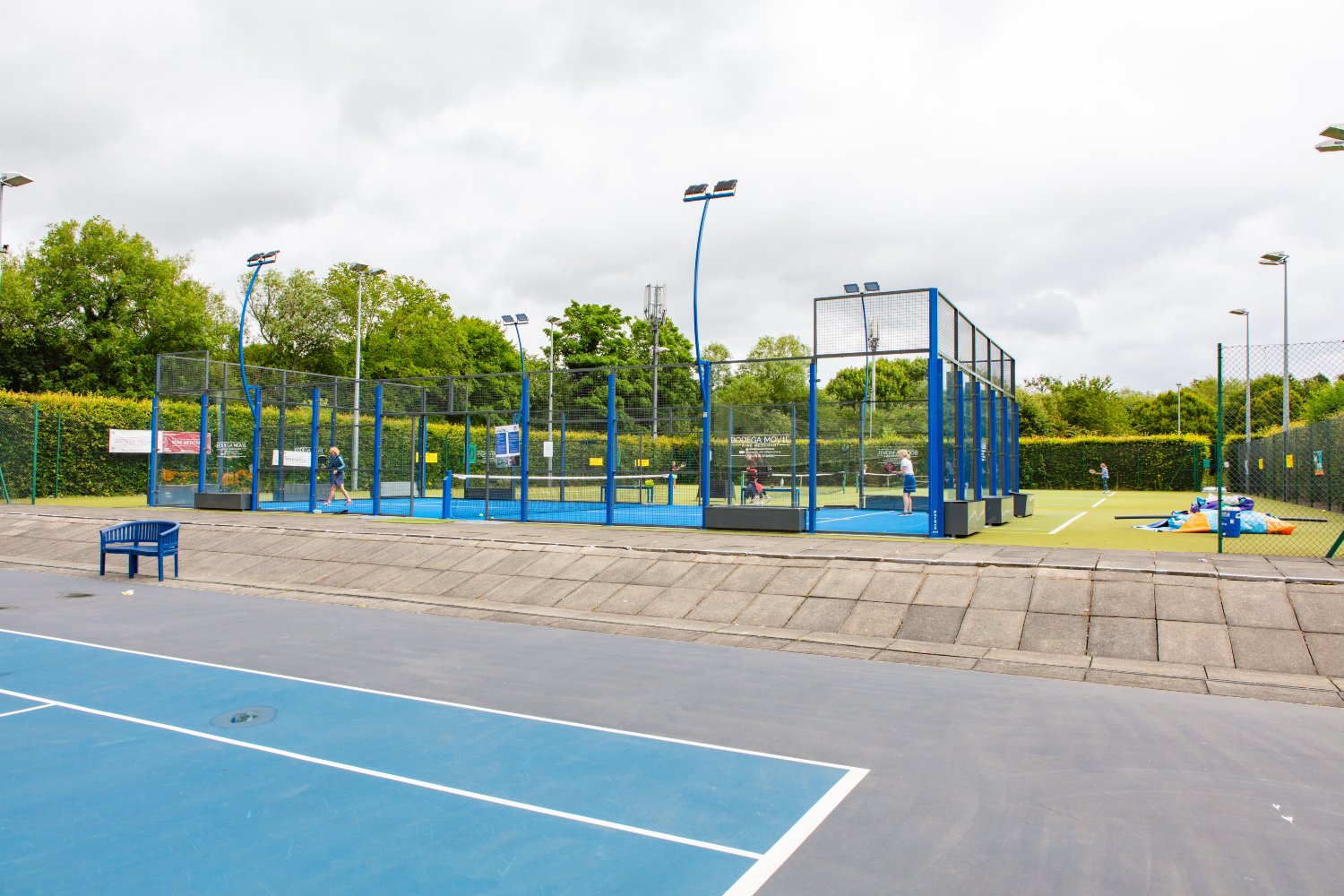
Tell us more about the growth of Padel as a sport in the UK:
“A large part of my previous role, and my role here at Ilkley, is to lead on padel’s development. In Yorkshire, padel is increasingly popular; we have it available at Skipton, Rawdon, Harrogate Spa, Chapel Hill, Seacroft. And then there’s the commercial sector; you may have heard of Surge Padel. Commercial partnership is growing, and Ilkley has had enquiries – on behalf of Pickleball also.
Racket sports are growing in popularity overall, and especially, are becoming more diverse. For example, tennis is quite technically difficult, you need to have played it when you were younger because it’s harder to pick up in later life. Tennis, however, is a sport for life, teaching the skills needed in all other racket sports.
Padel is far more accessible, it’s easier to pick up and a bit more social. It’s also a smaller court, ideal if you are not as mobile; and a quicker game, requiring less time.
And then there’s squash, a technically difficult sport, requiring more flexibility to get to the stiffer ball.
Padel then, being more accessible, reaches a wider audience, and has a more diverse clientele. It’s a shorter game, more affordable in the long run, and less exclusive. It’s favoured by families, money-tight individuals such as students, and older players, as well as businesses.”
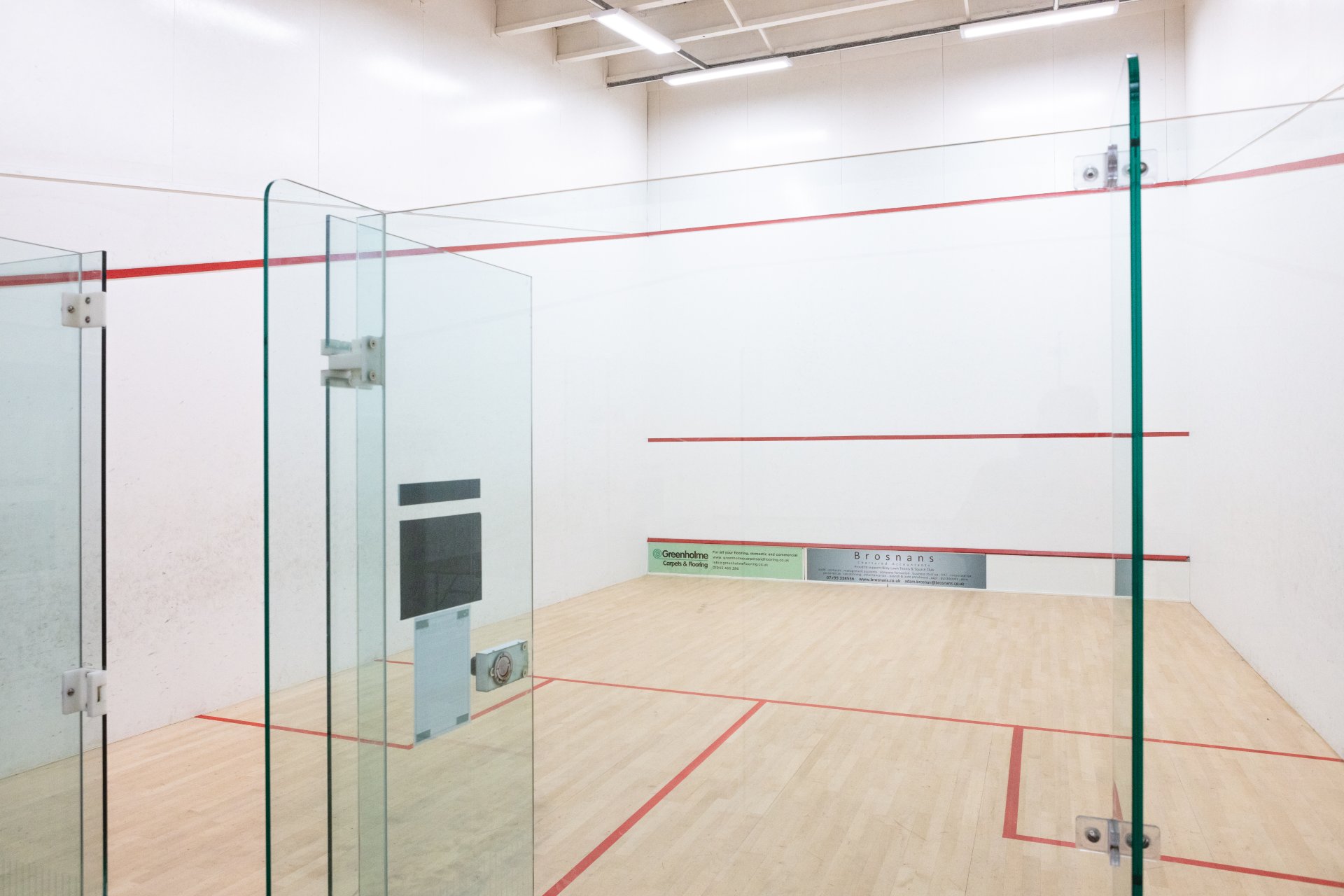
What are the challenges you face and how are you working to get more people involved in tennis?
“Tennis has got that elitist tag. There are two reasons why. Firstly – to make it as a tennis player is incredibly hard. All the money is at the top of the game and if you’re not top 200 in the world then you’re barely breaking even; you’re not earning a living. It’s also a very early specialist sport. Children need to be county level by age 8, European level by 14, and international level age 18. To get there requires 10,000 hours of individual coaching, which is very costly.
Secondly – the bedrock of tennis is members’ clubs. The word ‘members’ creates a barrier in itself, associated with needing to be wealthy or needing to be talented.
Over time, the LTA have been keen to break these barriers down. ‘Tennis Opened Up’ is the LTA’s vision, it targets areas where tennis isn’t traditionally played, and actually takes tennis to those communities.
In Yorkshire, those communities include Keighley, Bradford, as well as others, and the LTA will provide accessible tennis games using pop-ups or club outreach. A goal is to adopt and create more local community champions. There’s a product called Serves, which puts tennis in community centres. It’s similar with schools; the avenue is not to bring the children to clubs, but to make tennis available where they are, on their doorstep.
I know, from my previous role, that councils need leadership on how to execute these tennis activities, which is where I feel Ilkley Lawn Tennis Club can come in. At Ilkley, we’d like to put our hat in the ring to oversee this, and also lead on engaging with local communities and providing resources. We could even ringfence some surplus income from our trophy events and give back to the community.
You never know, if one of the children who benefits becomes a future star, then that’s all the more reason to outreach.”
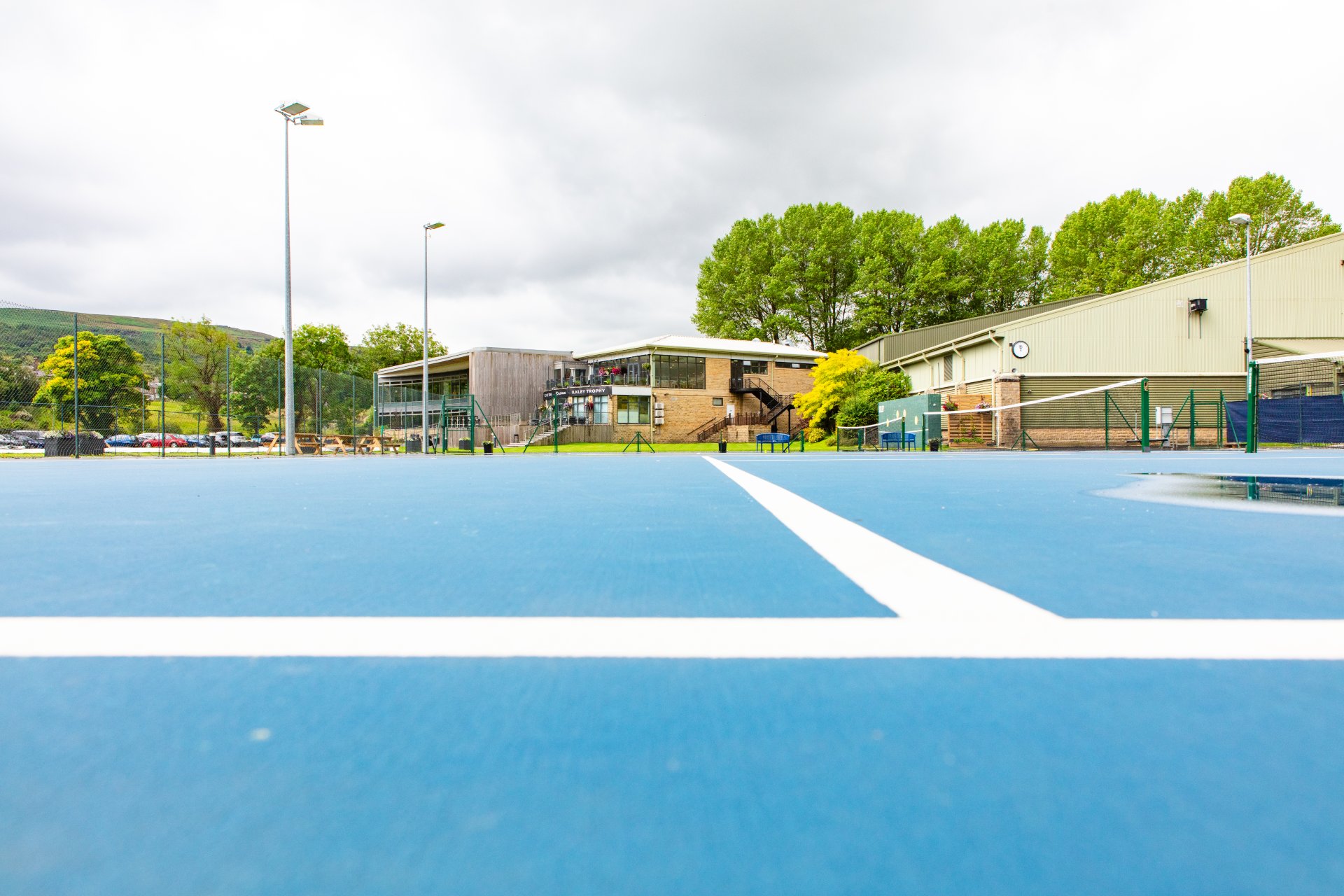
What outreach projects are you leading at Ilkley Lawn Tennis Club?
“During our Lexus Ilkley Trophy Tennis Tournament, we had just short of 2,000 children from local schools visit us. 48 primary schools all got a chance to play tennis with our coaches. 40% of the children came from IMD 1 to 3 areas (Indices of Multiple Deprivation).
This was then followed up by the schools who increasingly pushed tennis. Many local parks in these deprived postcodes have recently seen refurbishments, adding tennis courts which are free to book. Doing pop-ups at these locations, visiting schools, and also inviting schools to our club for one-off free sessions encompasses our outreach strategy so far.”
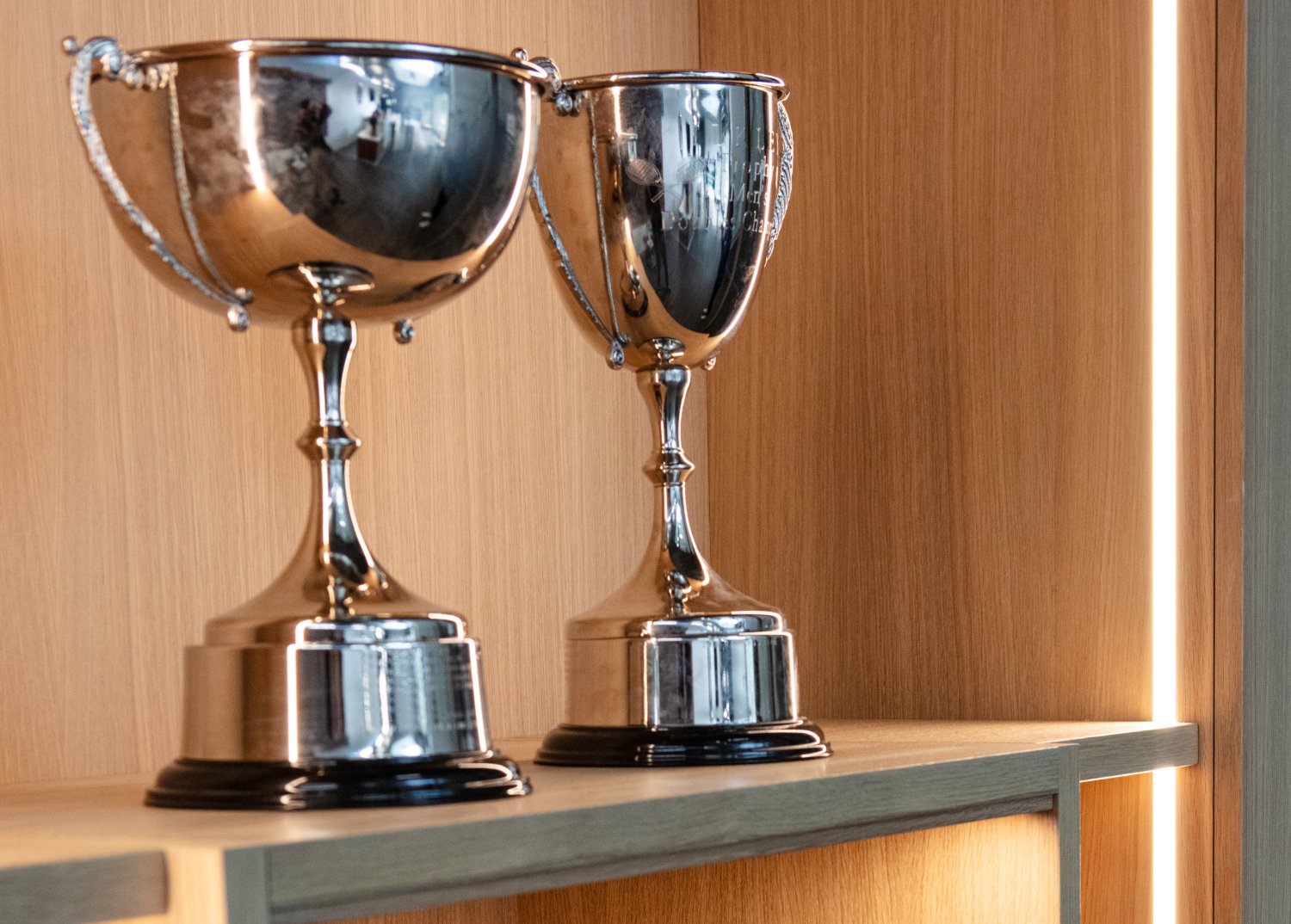
Is the Wimbledon effect real?
“At this time of the year – summertime right after Wimbledon – park courts are definitely busier. Wimbledon being on terrestrial telly is so important, and a strategic decision by the LTA; you don’t need a subscription to watch it.
The Wimbledon effect is definitely felt when you notice court bookings and price spikes. Here at Ilkley, we get a lot of parents inquiring at this time about how they can get their child involved in the sport, and by association we often gain the family as members.
On the flip side, it’s a short window, casual players don’t play tennis all year round. Through the months of June and July there’s a spike in the interest of tennis, but it soon evaporates thereafter. There is a pressure to capitalise.
I’m often wondering: How could we extend this window? How can we make tennis popular all year round?
We need to help people and parents self-serve. We need to provide better ways for non-members to try tennis. I’m increasingly finding myself receiving emails from parents at 10pm trying to get tuition. There needs to be more common streamlined booking systems and more venues to play at. One solution is to introduce tennis during summer through outreach and summer camps, then provide follow on offers.
At Ilkley we are an all-year round club – our busiest periods are actually September right through to May, opposite to Wimbledon. We cater to people already hooked on tennis, our indoor courts are fully booked 90% of the time. We need to focus on development by expanding our services and building more covered courts. So although Wimbledon benefits tennis as a whole, at Ilkley our aim is to support tennis all year round.”
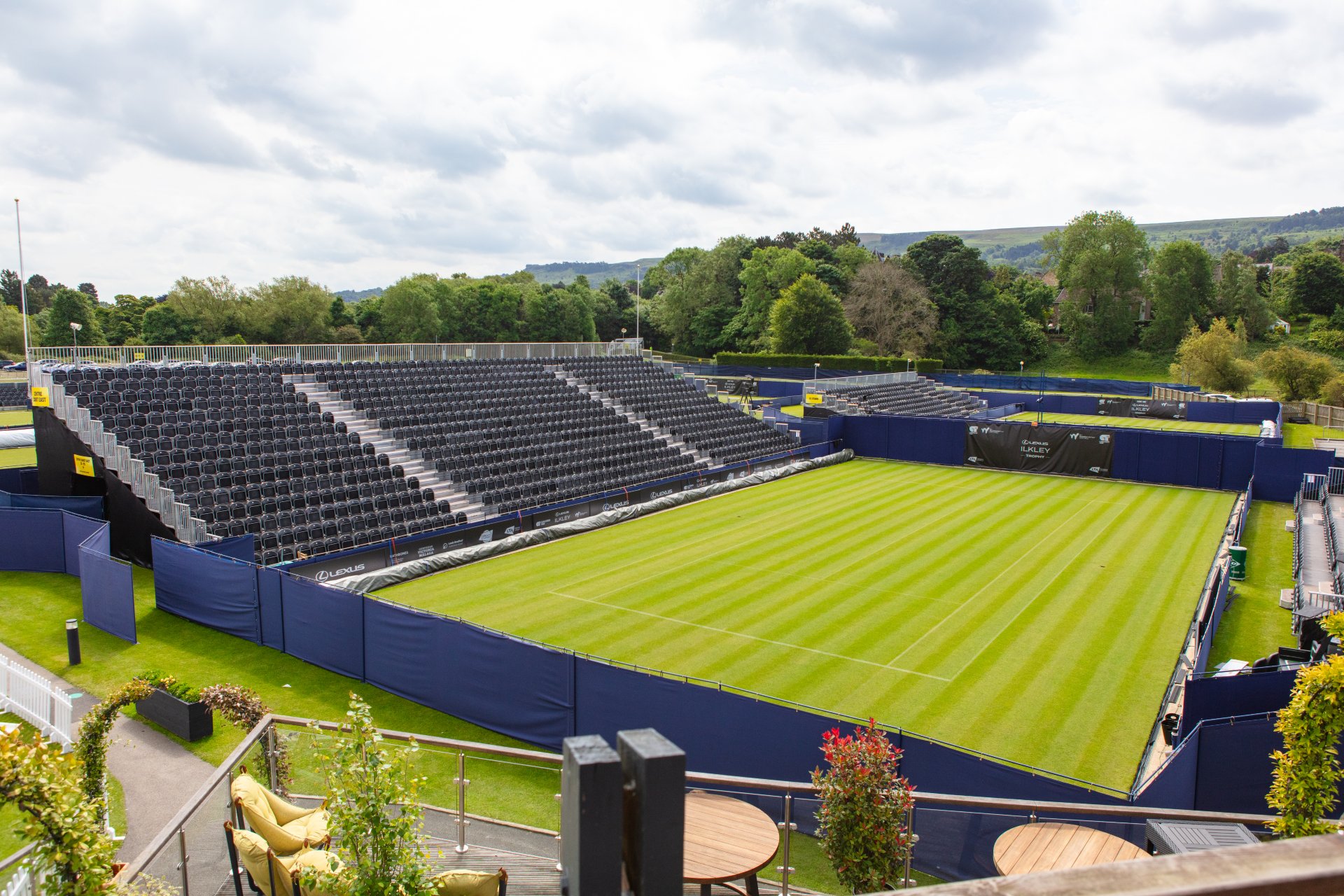
Tell us more about the development of Padel at Ilkley:
“Padel tennis is exploding at the moment! The club had stagnated on the padel front before I came in, simply because of capacity within the team and the need for volunteers.
We’ve got a temporary court available at Ilkley, but we’ve achieved planning permission to relocate some of our existing outdoor tennis courts, and so we are hoping to use the space to expand our padel offering. The planning has been tricky because we’re on a floodplain and so we can’t displace water. The courts therefore would need to be on stilts. Padel courts have an astroturf core, which can’t be at risk of flood water because it clogs the porous element of the turf.
So to find a solution, we are waiting on a few padel companies and engineering companies to come back with ideas and quotes. I’ll then suggest some scenarios and solutions to the board who will review costs.
To develop padel at the club, I’ve suggested we open up the booking system to non-members. I see padel as a gateway to the rest of the club’s services; padel can diversify the members and users of this club if we execute the right model. This is the way forward.
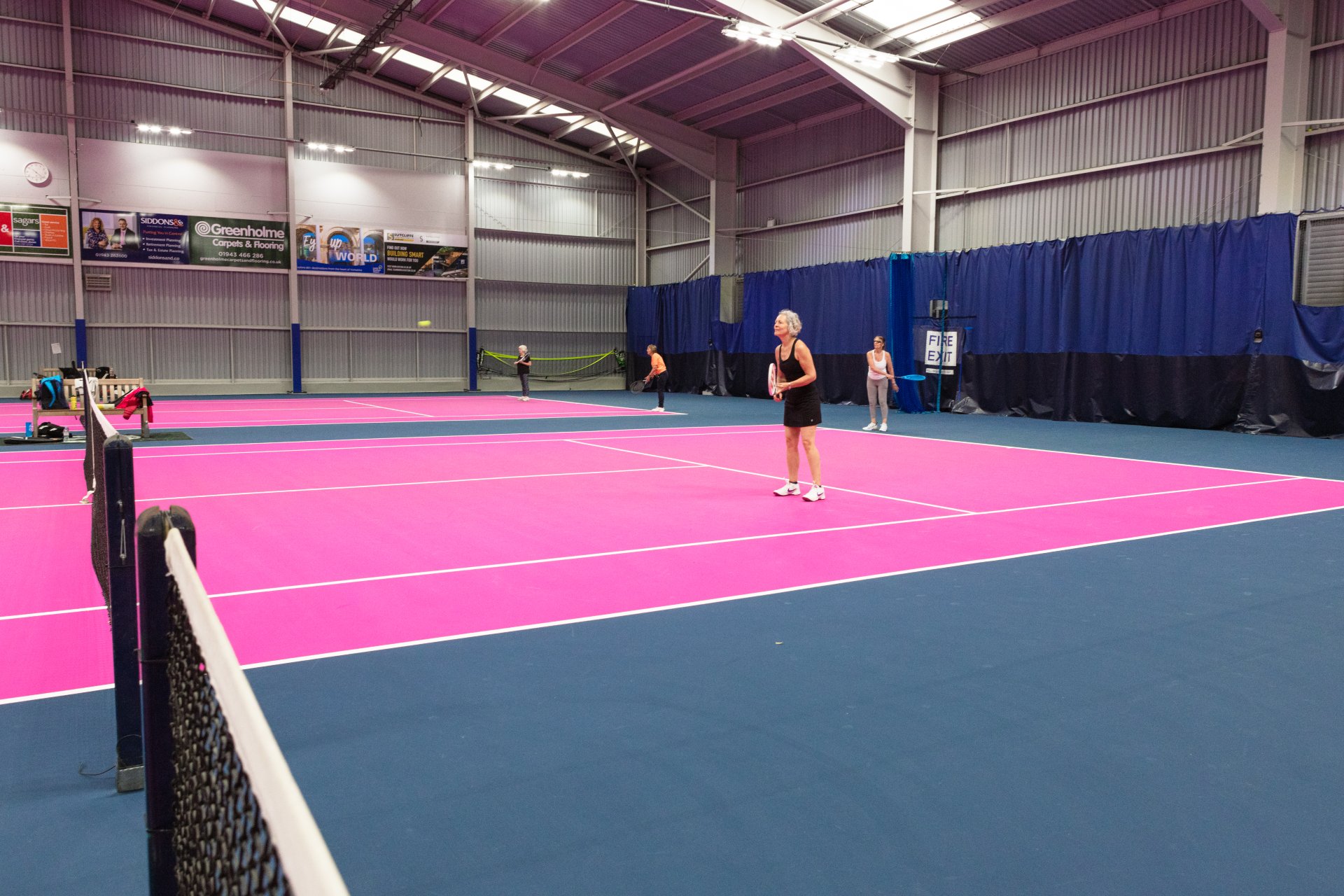
Is tennis a viable solution for sports clubs looking to expand?
“It’s definitely possible, but it requires funding.
To install a tennis court, with groundwork and time, it’s probably around £40,000. That’s per court.
As a better use of space, I would recommend padel. Building a padel court is also expensive, around £75,000 per court; that being £37,000 for the groundworks, a concrete base and ring beam to support the outer foundation, and then £37,000 for the side panels, astroturf and floodlights. However padel stacks up against tennis well because there’s less space taken up and more people playing at once with shorter games.
This is why I see pickleball taking off. It’s massive in Florida, but I don’t know of anyone in the UK yet who has taken the plunge. I was a sceptic of padel 4 years ago, and now we are at that point with pickleball. You get even more people playing per square foot, it’s an entry level racket sport, and suits the older generation.
It’s a difficult call for sports clubs; should they follow trends and try something new and experimental, or keep with tradition. Tennis, after-all, is a game for life.
Of course, sports and social clubs looking to learn more about tennis are welcome to get in touch with me at Ilkley Lawn Tennis and Squash Club.”
A big thank you to Gavin for his time and consideration. We wish you all the best with your progress and continued success at Ilkley Lawn Tennis and Squash Club.






